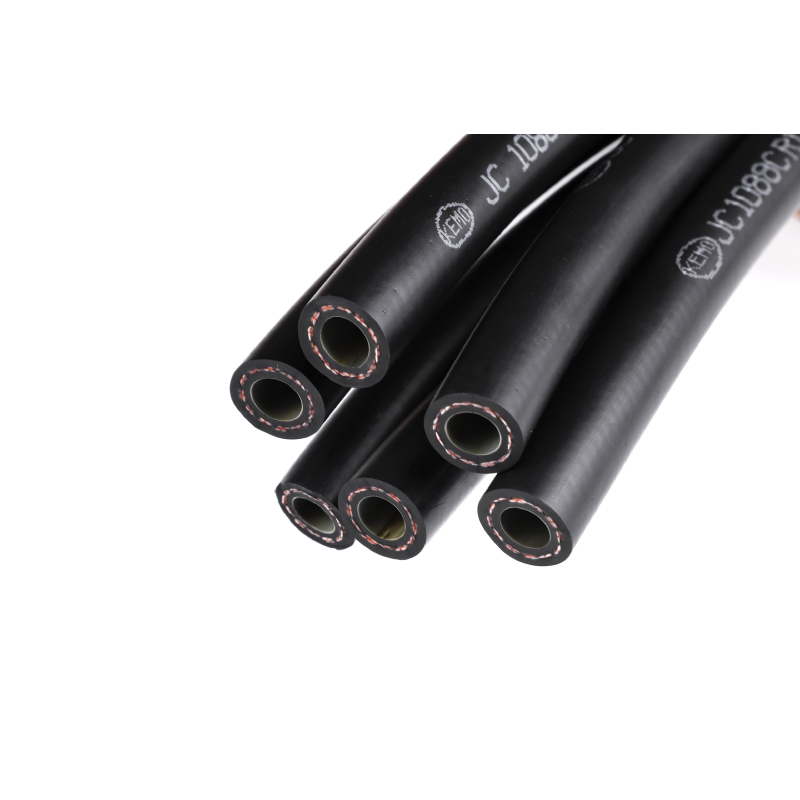refrigeration vacuum hoses
តុលា . 07, 2024 06:47 Back to list
refrigeration vacuum hoses
Understanding Refrigeration Vacuum Hoses Importance and Applications
Refrigeration systems are essential in various industries, from food storage to pharmaceutical applications. A critical component of these systems is the vacuum hose, which plays a significant role in ensuring the efficiency and effectiveness of refrigeration processes. In this article, we will explore the importance of refrigeration vacuum hoses, their applications, and best practices for maintenance.
Importance of Vacuum Hoses in Refrigeration
Vacuum hoses are designed to facilitate the removal of air and moisture from refrigeration systems. When a refrigeration system is installed or serviced, it is crucial to create a vacuum to eliminate any non-condensable gases and moisture. These contaminants can significantly affect the performance of the system and lead to costly repairs or outright failures if not addressed.
The primary function of refrigeration vacuum hoses is to connect the vacuum pump to the refrigeration system. These hoses are specifically engineered to withstand the low pressures generated by the vacuum pump. Typically made from durable materials, such as rubber or reinforced synthetic compounds, they are designed to resist collapse and maintain structural integrity under vacuum conditions.
Applications of Vacuum Hoses
1. Commercial Refrigeration In supermarkets and restaurants, vacuum hoses are used in the installation and maintenance of walk-in coolers, display cases, and other refrigeration units. Ensuring a tight seal during the vacuum process helps maintain optimal temperature conditions, ultimately preserving food quality and safety.
2. Domestic Refrigeration Home refrigerators benefit from the use of vacuum hoses during servicing. Technicians often use these hoses to evacuate the system before recharging it with refrigerant, ensuring that any moisture present is removed, thus enhancing the unit's efficiency.
3. Industrial Refrigeration Large-scale refrigeration systems, such as those found in manufacturing and processing plants, rely on vacuum hoses during initial setup and routine maintenance. These systems often operate under rigorous conditions, making reliable vacuum hoses essential to the overall performance and longevity of the refrigeration units.
refrigeration vacuum hoses

Best Practices for Vacuum Hose Maintenance
To ensure the durability and effectiveness of refrigeration vacuum hoses, regular maintenance is crucial. Here are some best practices to consider
- Inspection Regularly inspect vacuum hoses for signs of wear, such as cracks, abrasions, or leaks. Any damaged hoses should be replaced immediately to prevent air infiltration, which can compromise system performance.
- Storage Store vacuum hoses in a cool, dry place away from direct sunlight and chemicals that might degrade the materials. Proper storage prolongs the life of the hoses and ensures they remain in optimal condition for use.
- Cleaning After use, clean the hoses to remove contaminants that might affect their next application. Avoid using harsh chemicals that could damage the hose material.
- Proper Connection Ensure that vacuum hoses are properly connected to both the vacuum pump and the refrigeration system. A secure connection minimizes the risk of leaks and enhances the effectiveness of the vacuum process.
Conclusion
In summary, refrigeration vacuum hoses are vital components in the maintenance and efficiency of refrigeration systems across various applications. By understanding their importance, adhering to best maintenance practices, and ensuring proper usage, both technicians and operators can significantly enhance the performance and longevity of their refrigeration systems. Investing time and care in managing vacuum hoses will ultimately contribute to cost savings and improved operational efficiency.
